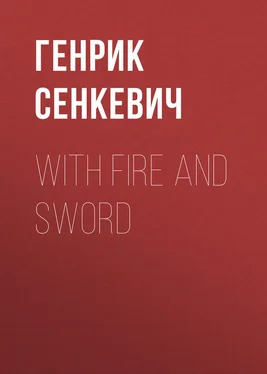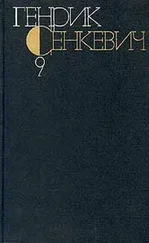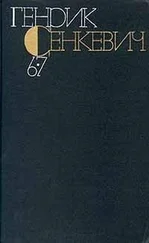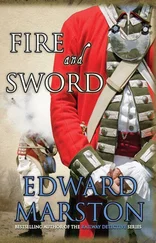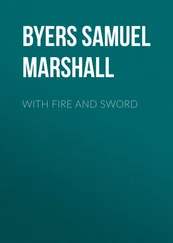Генрик Сенкевич - With Fire and Sword
Здесь есть возможность читать онлайн «Генрик Сенкевич - With Fire and Sword» — ознакомительный отрывок электронной книги совершенно бесплатно, а после прочтения отрывка купить полную версию. В некоторых случаях можно слушать аудио, скачать через торрент в формате fb2 и присутствует краткое содержание. Жанр: foreign_antique, foreign_prose, на английском языке. Описание произведения, (предисловие) а так же отзывы посетителей доступны на портале библиотеки ЛибКат.
- Название:With Fire and Sword
- Автор:
- Жанр:
- Год:неизвестен
- ISBN:нет данных
- Рейтинг книги:4 / 5. Голосов: 1
-
Избранное:Добавить в избранное
- Отзывы:
-
Ваша оценка:
- 80
- 1
- 2
- 3
- 4
- 5
With Fire and Sword: краткое содержание, описание и аннотация
Предлагаем к чтению аннотацию, описание, краткое содержание или предисловие (зависит от того, что написал сам автор книги «With Fire and Sword»). Если вы не нашли необходимую информацию о книге — напишите в комментариях, мы постараемся отыскать её.
With Fire and Sword — читать онлайн ознакомительный отрывок
Ниже представлен текст книги, разбитый по страницам. Система сохранения места последней прочитанной страницы, позволяет с удобством читать онлайн бесплатно книгу «With Fire and Sword», без необходимости каждый раз заново искать на чём Вы остановились. Поставьте закладку, и сможете в любой момент перейти на страницу, на которой закончили чтение.
Интервал:
Закладка:
Then his thoughts wandered farther. Peace would come, when every one would have the right to think of his own private happiness. Then in memory and spirit he hovers above Rozlogi. There, near the lion's den, it must be as quiet as the falling of poppy-seeds. There the rebellion will never raise its head; and though it should, Helena is already in Lubni beyond a doubt.
Suddenly the roar of cannon disturbed the golden thread of his thoughts. Hmelnitski, after drinking, led his regiments again to the attack. But it ended with the play of cannon-firing. Krechovski restrained the hetman.
The next morning was Sunday. The whole day passed quietly and without a shot. The camps lay opposite each other, like the camps of two allied armies.
Skshetuski attributed that silence to the discouragement of the Cossacks. Alas! he did not know that then Hmelnitski, "looking forward with the many eyes of his mind," was occupied in bringing Balaban's dragoons to his side.
On Monday the battle began at daybreak. Pan Yan looked on it, as on the first one, with a smiling, happy face. And again the regiments of the crown came out before the intrenchment; but this time, not rushing to the attack, they opposed the enemy where they stood. The steppe had grown soft, not on the surface only, as during the first day of the battle, but to its depths. The heavy cavalry could scarcely move; this gave a great preponderance at once to the flying regiments of the Cossacks and the Tartars. The smile vanished gradually from the lieutenant's lips. At the Polish intrenchment the avalanche of attack covered completely the narrow line of the Polish regiments. It appeared as if that chain might break at any moment, and the attack begin directly on the intrenchments. Skshetuski did not observe half of the spirit or warlike readiness with which the regiments fought on the first day. They defended themselves with stubbornness, but did not strike first, did not crush the kurens to the earth, did not sweep the field like a hurricane. The soft soil had rendered fury impossible, and in fact fastened the heavy cavalry to its place in front of the intrenchment. Impetus was the power of the cavalry, and decided victories; but this time the cavalry was forced to remain on one spot.
Hmelnitski, on the contrary, led new regiments every moment to the battle. He was present everywhere. He led each kuren personally to the attack, and withdrew only before the sabres of the enemy. His ardor was communicated gradually to the Zaporojians, who, though they fell in large numbers, rushed to the attack with shouts and cries. They struck the wall of iron breasts and sharp spears, and beaten, decimated, returned again to the attack. Under this weight the regiments began to waver, to disappear, and in places to retreat, just as an athlete caught in the iron arms of an opponent grows weak, then struggles, and strains every nerve.
Before midday nearly all the forces of the Zaporojians had been under fire and in battle. The fight raged with such stubbornness that between the two lines of combatants a new wall, as it were, was formed of the bodies of horses and men. Every little while, from the battle to the Cossack intrenchments came crowds of wounded men, – bloody, covered with mud, panting, falling from weakness, – but they came with songs on their lips. Fainting, they still cried, "To the death!" The garrison left in the camp was impatient for the fight.
Pan Yan hung his head. The Polish regiments began to retreat from the field to the intrenchment. They were unable to hold out, and a feverish haste was observable in their retreat. At the sight of this twenty thousand mouths and more gave forth a shout of joy, and redoubled the attack. The Zaporojians sprang upon the Cossacks of Pototski, who covered the retreat. But the cannon and a shower of musket-balls drove them back. The battle ceased for a moment. In the Polish camp a trumpet for parley was sounded.
Hmelnitski, however, did not wish to parley. Twelve kurens slipped from their horses to storm the breastworks on foot, with the infantry and Tartars. Krechovski, with three thousand infantry, was coming to their aid in the decisive moment. All the drums, trumpets, and kettledrums sounded at once, drowning the shouts and salvos of musketry.
Skshetuski looked with trembling upon the deep ranks of the peerless Zaporojian infantry rushing to the breastworks and surrounding them with an ever-narrowing circle. Long streaks of white smoke were blown out at it from the breastworks, as if some gigantic bosom were striving to blow away the locusts closing in upon it inexorably from every side. Cannon-balls dug furrows in it; the firing of musketry did not weaken for a moment. Swarms melted before the eye; the circle quivered in places like a wounded snake, but went on. Already they are coming! They are under the breastworks! The cannon can hurt them no longer! Skshetuski closed his eyes.
And now questions flew through his head as swift as lightning: When he opens his eyes will he see the Polish banners on the breastwork? Will he see-or will he not see? There is some unusual tumult increasing every moment. Something must have happened? The shouts come from the centre of the camp. What is it? What has happened?
"All-powerful God!"
That cry was forced from the mouth of Pan Yan when opening his eyes he saw on the battlements the crimson standard with the archangel, instead of the golden banner of the crown. The camp was captured.
In the evening he learned from Zakhar of the whole course of the storm. Not in vain had Tugai Bey called Hmelnitski a serpent; for in the moment of most desperate defence the dragoons of Balaban, talked over by the hetman, joined the Cossacks, and hurling themselves on the rear of their own regiments, aided in cutting them to pieces.
In the evening the lieutenant saw the prisoners, and was present at the death of young Pototski, who, having his throat pierced by an arrow, lived only a few hours after the battle, and died in the arms of Stephen Charnetski: "Tell my father," whispered the young castellan in his last moments, – "tell my father-that-like a knight-" He could add no more. His soul left the body and flew to heaven.
Pan Yan long after remembered that pale face and those blue eyes gazing upward in the moment of death. Charnetski made a vow over the cold body to expiate the death of his friend and the disgrace of defeat in torrents of blood, should God give him freedom. And not a tear flowed over his stern face, for he was a knight of iron, greatly famed already for deeds of daring, and known as a man whom no misfortune could bend. He kept the vow. Instead of yielding to despair, he strengthened Pan Yan, who was suffering greatly from the disgrace and defeat of the Commonwealth.
"The Commonwealth has passed through more than one defeat," said Charnetski, "but she contains within her inexhaustible force. No power has broken her as yet, and she will not be broken by a sedition of serfs, whom God himself will punish, since by rising up against authority, they are putting themselves against his will. As to defeat, true, it is sad; but who have endured defeat? – the hetmans, the forces of the crown? No! After the defection and treason of Krechovski, the division which Pototski led could be considered only an advance guard. The uprising will spread undoubtedly through the whole Ukraine, for the serfs there are insolent and trained to fighting; but an uprising in that part is no novelty. The hetmans will quell it, with Prince Yeremi, whose power stands unshaken as yet; the more violent the outburst, when once put down, the longer will be the peace, which may last perhaps forever. He would be a man of little faith and a small heart, who could admit that some Cossack leader, in company with one Tartar murza, could really threaten a mighty people. Evil would it be with the Commonwealth, if a simple outbreak of serfs could be made a question of its fate or its existence. In truth we did set out contemptuously on this expedition," said Charnetski; "and though our division is rubbed out, I believe that the hetmans are able to put down this rebellion, not with the sword, not with armor, but with clubs."
Читать дальшеИнтервал:
Закладка:
Похожие книги на «With Fire and Sword»
Представляем Вашему вниманию похожие книги на «With Fire and Sword» списком для выбора. Мы отобрали схожую по названию и смыслу литературу в надежде предоставить читателям больше вариантов отыскать новые, интересные, ещё непрочитанные произведения.
Обсуждение, отзывы о книге «With Fire and Sword» и просто собственные мнения читателей. Оставьте ваши комментарии, напишите, что Вы думаете о произведении, его смысле или главных героях. Укажите что конкретно понравилось, а что нет, и почему Вы так считаете.
